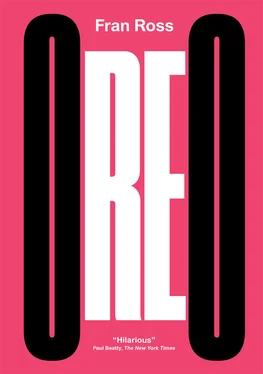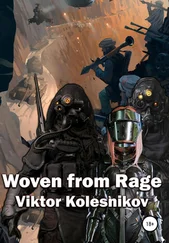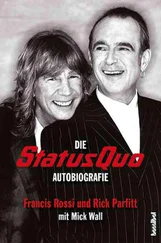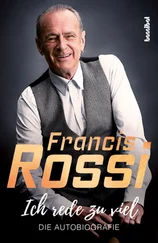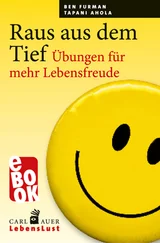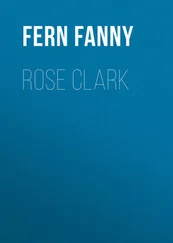Oreo on Broadway again
She was hungry. Now she was sorry that she had given Louise’s fine food to a bunch of pig-eyed strangers. And Waverley Honor had eaten like a mother, the faggot. Oreo was getting testy. She had a lot of money with her, but she did not want to spend it if she could help it. Cheap. Hunger finally forced her to buy a Blimpie, a vicious imitation of a hoagie. Her refined palate, trained and coddled chez Louise, still had blotches and patches that brooked nothing but junk foods. Thus she could within hours savor her grandmother’s thrifty, piping haggis and the rotten potato salad from Murray’s delicatessen; Louise’s holey, many-tongued fondue and the galosh pizza from Rosa’s Trattoria; a blanc de blancs champagne and a blankety-blank Pepsi, which she now washed the Blimpie down with. Her testiness was disappearing.
Oreo goes to the park
She decided to take a walk through the park the bus had passed and make up her mind about what she was going to do next. She used her walking stick as a piton for climbing rocks and hillocks in the park. It was not necessary, considering the modesty of Riverside’s ups and downs, but it made Oreo feel more like an adventurer.
When she stopped to rest, she looked up the addresses on her list in her book of maps. There were several S. or Samuel Schwartzes in the immediate neighborhood. She could make a few quick runs to check them out, using the park as an R and R base.
That evening
Oreo was exhausted. None of the S.’s or Sams belonged to her, but they had been diverting. There was the Sam on Eighty-ninth Street who wanted to adopt her; the Samuel on Columbus Avenue who saw voices (“Stick your fingers in your nose,” Oreo advised him, “and they’ll go away”); the S. on Cathedral Parkway who refused to say what the S. stood for (when Oreo guessed Snicklefritz on her second try, he turned blue, and she had to call an ambulance); the S. on Seventy-fifth Street who turned out to be a Shirley who had changed the name to an initial in the directory listing because of obscene phone calls (“My wife was very put off, psychologically and actually speaking, by heavy breathers who asked for me,” he explained). There was the Samuel on Broadway who, along with his wife, was in jail awaiting trial for the murder of his son Melvin. Mr. and Mrs. Schwartz had learned of their son’s plot to smother them in their beds and throw himself on the mercy of the court as an orphan, so they got him first. A neighbor told Oreo what the accused couple had said as they were dragged away: “Imagine the chutzpah on that kid — to think of a plot like that!” Sympathy in the building was running heavily in favor of the alleged murderers. Melvin had been known on the block as Smart Ass.
Because of these and other Schwartzes, Oreo had decided to call it a day. She had gone crazy at a delicatessen on Broadway called Zabar’s and had bought a lot of goodies to eat, the gourmet in her temporarily winning out over the stingy person. To compensate for her lack of control around good food, she was going to save money by sleeping overnight in the park instead of checking into a hotel. She had found that Riverside Park’s major drawback as a campsite was that it was long and narrow. It was flanked on the west by the Hudson River and the West Side Highway. Because of its narrowness, it had been difficult for Oreo to find a secluded spot, away from children, dogs, bicycle riders, tennis players, joggers, lovers. The place she had chosen for her picnic dinner she thought would be ideal for her overnight bivouac. It was hidden by trees and a huge rock, was near a water fountain and a park john, and was, for the moment, clear of people. She shoved her orange and white Zabar’s shopping bag under a natural shelf in the rock and went to the john.
As she sat there, she noticed a hole about the size of a half dollar in the door that would provide a midget’s-eye view of the toilet. Sure enough, a few moments later a midget’s eye appeared at the hole. Oreo could recognize one anywhere. The midget giggled, and Oreo picked up an empty cigarette pack that someone had dropped on the floor and slammed it against the hole.
“It’s giving me Marlboros,” said a high-pitched voice.
Oreo got tired of stretching from the toilet seat to the door and dropped the pack. The hole was clear for a few moments. Then the eye came back. A few seconds later, wiggling fingers replaced the eye. Oreo grabbed the fingers and twisted them with a gentle but persuasive torque. The fingers were withdrawn from the hole hastily. “Yah, yah, that didn’t hurt,” said the voice.
“It will the next time,” Oreo warned. She finished quickly and moved silently to the door. When she yanked it open and looked down, she was disappointed in herself. It wasn’t a midget, just a normal-sized redheaded shifty-eyed kid of about eight. “It’s a gypsy!” the boy howled when he saw Oreo, and he ran off.
What kind of dumb kid thinks I’m a gypsy? Oreo thought. A Canadian dumb kid, she found out a few minutes later, when he came back with his parents. Oreo smiled. The boy’s parents were midgets. She hadn’t lost her eye for spotting midget blood after all.
“I’m Moe,” the man said.
“And I’m Flo,” said the woman.
“And we’re here to say hello,” they said together.
Oreo was about to introduce herself, but she thought that more than three rhymes in one chorus would be too Cole Porter. Instead, she leaned down and said, “And what’s your name, little boy?”
“Look into your crystal ball, gypsy.”
Scrock, thought Oreo.
His parents apologized for his bad manners. “Joe’s his name,” said his father.
“And we came,” said his mother, who obviously leaned toward internal rhymes, “heigh-ho-the-derry-o…”
“… from Ontario.”
Moe and Flo Doe explained, in maddening doggerel, that they sold dog whistles and had been traveling all over so that Joe, who would inherit the business, would really get to know his territory — North America.
“Yep, we came from way out yonda,” said Moe.
“On a Honda,” Oreo put in before Flo could open her mouth.
“Yes, yes, yes. How’d you guess?” Moe said, grabbing the whole couplet for himself and thus revealing a selfish streak that Flo would doubtless have to contend with in their later, choliambic years as they went scazoning toward life’s dead end.
How many caesuras would a rhymester as undisciplined as Moe not hesitate to rush into? Oreo wondered. How many catalectics make acatalectic, spondees amphimacerize in his mad rush to complete rhymes all by himself, without the help and support of the musette he loved? True, Oreo had been guilty of infringement when she snatched — nay, usurped — Flo’s Honda line, but she had just met the midget woman and could hardly be accused of disloyalty.
The twice-deprived Flo raised a determined chin and said, “Why pay the rent? Pitch a tent,” leaving Moe with his mouth open.
Oreo saw that Flo could take care of herself and stopped worrying about her. The couple explained that although three Does could ride with comfort on one motor scooter, they always traveled with two, so that either Flo or Moe was riding with Joe while either Flo or Moe rode the scooter with the family camping gear. They saved on hotel bills by camping, usually illegally, in parks and any other wide spots in the road they could find.
Oreo admired their thrift. She went back to her rock, a stone’s throw away, and took out her buffet of noshes. Since the odds were that the Does could not eat much (a nanonosh), she offered to share her food with them. They declined with a klutzy quatrain (prose version: they were looking forward to the menu they had planned and wanted to get their camp set up before they prepared their evening meal). Oreo sat on her rock ledge and watched them. While she munched on smoked sable, chopped liver, and scallioned cream cheese, the munchkins pitched a hop-o’-my-thumb tent, then scurried to and fro with their dollhouse equipment.
Читать дальше
